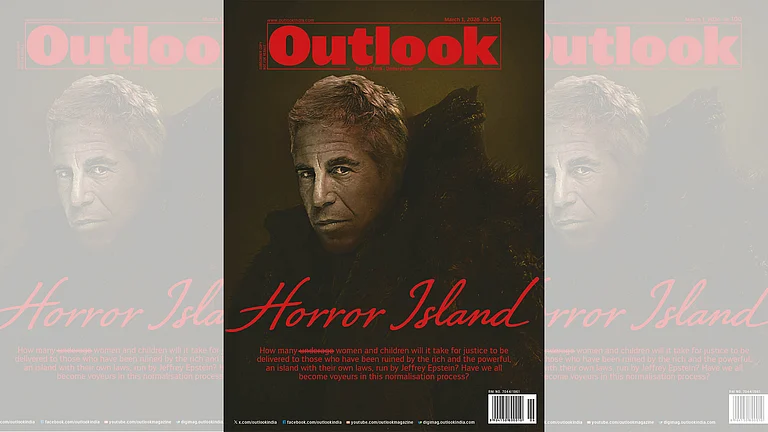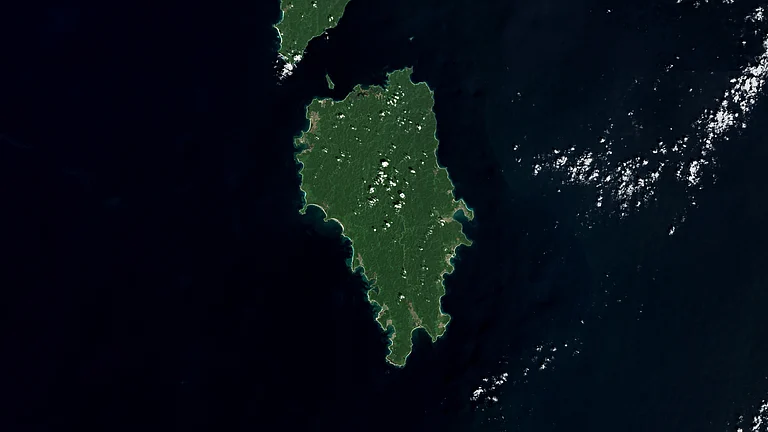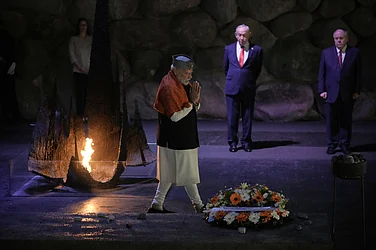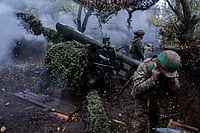The French government declared a state of emergency in New Caledonia, an overseas territory, late on Wednesday amid increasing violence in the riots over the constitutional reform on expanding the island's voters' list.
French government spokeswoman Prisca Thevenot announced the decision after a Cabinet meeting on Wednesday afternoon in Paris.
Thevenot described the unrest as "scenes of chaos", with at least four persons death being reported, including a member of the security services.
The emergency measures will give authorities greater powers to tackle the unrest, including the possibility of house detention for people deemed a threat to public order.
Security forces, impose nighttime curfew on capital Noumea and shut the international airport.
NEW CALEDONIA
A French overseas territory in the southern Pacific, New Caledonia has a population of about 270,000 people. Kanaks, the Indigenous group, makes for about 41 per cent of the vast archipelago's population.
Under Emperor Napoleon III, New Caledonia was annexed by French in 1853. Th archipelago became a French overseas territory in 1946, with French citizenship being granted to the Kanaks in 1957.
Situated amid a geopolitically complex maritime region, New Caledonia is the world's third largest producer of nickel. The United States of America and China have been hustling for power and influence in trade and security, Reuters reported.
HISTORY BETWEEN NEW CALEDONIA AND FRANCE
Years after becoming a French overseas territory, tensions began to surface in New Caledonia in view o a nickel boom, drawing outsiders to the island. The situation gave birth to several conflicts between Paris and the Kanaks' Independence movements.
A peace deal, Noumea Accord, was arrived at between rival factions in 1988. Under the accord, France also outlined a gradual path to granting autonomy to the island, limiting the voting right to indigenous Kanaks and those living in New Caledonia before 1988.
The autonomy allowed by the accord were to hold up to three successive referendums. The three referendums were organized between 2018 to 2021, however in all three, independence was rejected.
The pro-independence Kanaks had rejected the last referendum and boycotted it as it was held during the peak of the Covid-19 pandemic.
WHY DID THE RIOTS ERUPT?
The Noumea Accord, restricted the voting rights -- in provincial elections -- to the indigenous Kanak group and those residing in the island before 1988. This aimed at giving increased representation to e Kanaks, who had fallen into the category of minority population.
The voters list for New Caledonia has not been updated since. But now France has termed the situation to be undemocratic, proposing the inclusion of those who have lived in the island for at least ten years in the electoral process.
The proposed constitutional reform for the same was passed by the French Senate in April. Lawmakers in the Lower House Parliament voted in favour of the constitutional reform which is being opposed by Kanaks.
Opposers of the reform have said tat expanding the voter list would benefit pro-France politicians in New Caledonia and further marginalise Kanaks.
On Sunday, French President Emmaneul Macron had said that if the constitutional reform gets passed, he will postpone its implementation into law. He added that he would invite the people of the island to Paris for talks to reach a mutually agreed-upon settlement.
THE CURRENT SCENARIO
As one person was killed and several others were injured, French Interior Minister Gerald Darmanin said that the injured included "around 100" police and gendarmes, who were deployed to tackle the unrest.
Police have arrested over 130 persons since the violent riots first broke out on Monday night, with several persons in detention and facing court hearings.
Meanwhile, French Prime Minister Gabriel Attal condemned the violence and called for a dialogue "with all stakeholders and all local actors" over the reform proposal that has been submitted to the National Assembly, France's most influential house of parliament.
The territory's top French official, High Commissioner Louis Le Franc, said the situation remained “extremely tense.”
The High Commission also said that the La Tontouta International Airport remained shut for commercial flights, urging citizens to limit their travel during daytime.
On the other hand, Daniel Goa, president of the pro-independence Caledonian Union party, called for peace but said the protests "reveal the determination of our young people to no longer let France rule them".
(With inputs from agencies)























